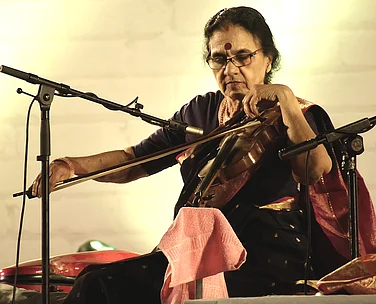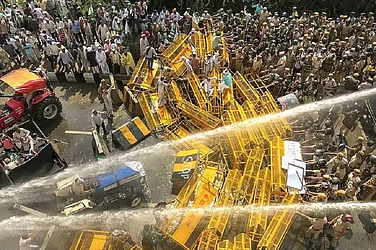THE sudden chest pain which Gujarat Chief Minister Keshubhai Patel developed on the morning of October 15,could not have but brought relief to the central leadership of the Bharatiya Janata Party. Patel, who was admitted to the VVIP unit (D-6) of Ahmedabad Civil Hospital, was advised three days bed rest. And the party promptly postponed the meeting of it's state legislature party scheduled for the next day. The agenda had been the election of a new chief minister, in place of Patel who, it had been decided, would be sacrificed as a result of the compromise with rebel leader Shankersinh Vaghela on October 7.
That a consensus on the choice of Patel's successor had eluded the BJP was obvious from the fact that even on October 15, the BJP leaders were still engaged in an exercise to hammer out an agreement on the deal. A day earlier, in a meeting with senior party leader Atal Behari Vajpayee and Rajasthan Chief Minister Bhairon Singh Shekhawat, Vaghela had flatly turned down the proposed formula that Patel be allowed to continue as chief minister while Vaghela joined the government as deputy chief minister. Vaghela was still insistent that the Gujarat BJP chief Kashiram Rana be Patel's successor.
Another fortuitous offshoot of the postponement of the meeting was that it would not now cast a shadow on the BJP's presidential elections. The last date for the filing of nominations for the election, in which L.K. Advani was expected to be unanimously elected for a second term, was October 19. The central leadership had sensed the mood of the rebels and knew too well that a failure to solve the crisis at the October 16 meeting would have further tarnished the party's projected image as a disciplined and cohesive organ -isation. Till the evening of October 15, Shekhawat and Vajpayee besides Party General Secretary Pramod Mahajan were still persuading Vaghela to accept the new formula so that he became a natural successor to Patel at a later stage.
Vaghela's camp followers were also extremely wary and urged him to insist that the pressure be kept up on the party to adhere to the assurance given by Vajpayee at the October 7 compromise regarding Patel's removal. "They will use the time and the rope to divide us," they told their leader. "We will sort it out immediately after Keshubhai comes out of hospital in three days," says Rana. But other rebel leaders fear that the delay could be longer. "We will not wait till Diwali," said another rebel leader.
What delayed the almost inevitable choice of Rana as the successor in the confidence vote early this month, was the stiff opposition from a section of the party that "indiscipline should not be encouraged in any manner". This, in the face of the pro-Patel legislators' demand to not allow any change in leadership seemed to create a fresh impasse. Yet, there was no change in their stand to let Vajpayee handle the issue, and the latter seems more or less determined on the ouster of Patel.
In spite of Vajpayee, Shekhwat, K.L. Sharma, Mahajan and Advani having agreed to ease out Patel, the plan could not be implemented as K.R. Malkani, party idealogue, levelled charges that Vaghela had worked at the Congress party's behest to engineer a split in the BJP. Vaghela was also accused ofgetting "dubious financial" assistance from builders' lobbies and black-marketeers—two prime targets of the Patel government. Patel's role in the arrest of notorious smuggler Abdul Latif on October 11, earned him the massive support of the people.
But the anti-Vaghela tirade and Latif's arrest come at a time when Patel is almost written off as the chief minister. Patel, no doubt, enjoys a much better reputation than Vaghela does. But the BJP at the moment has little choice. Like the Congress, the BJP's future hinges on its ability to exist cohesively. And in spite of its efforts at presenting a clean profile, the party seems prepared to compromise in order to survive.


























